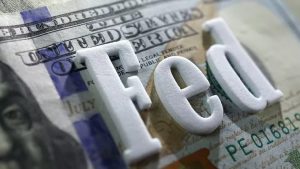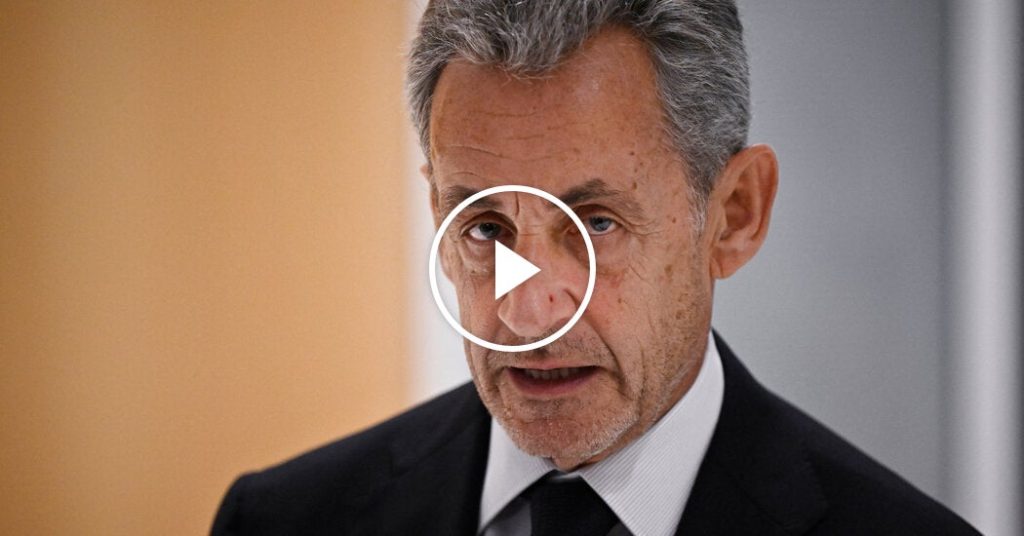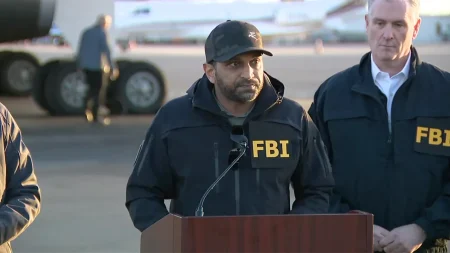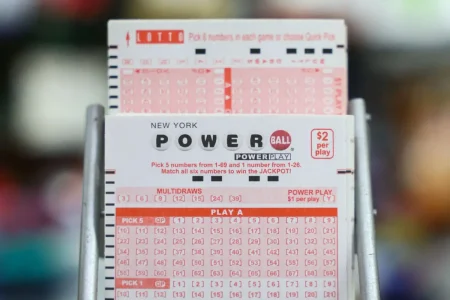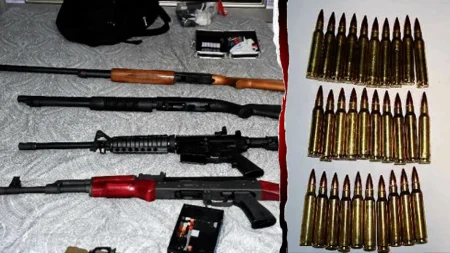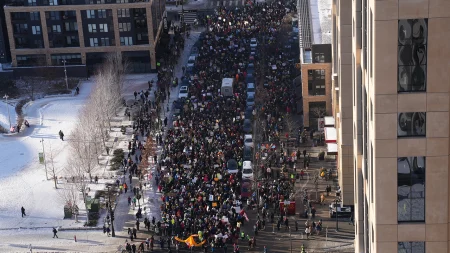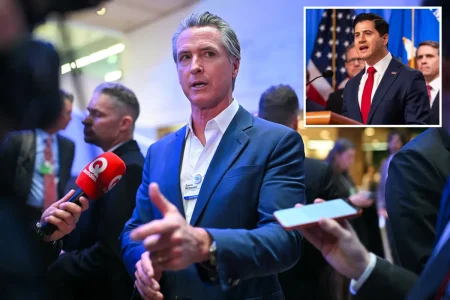Former French President Sarkozy Sentenced to Five Years in Libyan Money Conspiracy Trial
Historic Verdict Marks Unprecedented Fall From Grace for French Political Icon
By James Reynolds | October 15, 2023
In a landmark ruling that has sent shockwaves through French politics, former President Nicolas Sarkozy was sentenced to five years in prison after being found guilty of criminal conspiracy in a case involving illicit campaign financing from Libya. A Paris court determined that Sarkozy had knowingly accepted millions in illegal funds from the regime of Colonel Muammar el-Qaddafi to finance his successful 2007 presidential campaign, marking one of the most significant political corruption convictions in modern French history.
The Fall of a Political Titan
The verdict delivered Wednesday represents a stunning downfall for the man who once stood at the pinnacle of French political power. Sarkozy, who served as France’s president from 2007 to 2012, maintained a stoic expression as the judge read out the damning conclusion to a trial that has captivated the nation for months. Beyond the five-year prison sentence, the court also imposed a fine of approximately $117,000 on the former head of state. Legal experts note this conviction is particularly significant as it marks the first time a modern French president has been found guilty of such serious corruption charges related to campaign financing from a foreign power.
“This verdict sends a clear message that no one, regardless of their position or power, stands above the law,” said prosecutor Jean-Michel Lambert following the announcement. “The evidence presented demonstrated beyond reasonable doubt that Mr. Sarkozy knowingly participated in a criminal conspiracy to circumvent French electoral laws and accepted substantial sums from the Libyan regime.”
The court heard testimony from dozens of witnesses, including former Libyan officials, intelligence agents, and members of Sarkozy’s inner circle. Particularly damaging was documentary evidence showing complex financial transactions that prosecutors argued were designed to launder Libyan funds into Sarkozy’s campaign coffers—transactions that the court ultimately determined could not have occurred without the candidate’s knowledge and approval.
A Conspiracy Unveiled: How Libyan Money Flowed to France
The investigation that led to Wednesday’s conviction began nearly a decade ago after documents published by French investigative website Mediapart suggested the existence of an agreement to fund Sarkozy’s campaign with up to €50 million from Libya. The subsequent probe uncovered what prosecutors described as an elaborate network of intermediaries, offshore accounts, and cash transactions designed to conceal the source of funds flowing into Sarkozy’s campaign.
Central to the case was testimony from several high-ranking Libyan officials who served under Qaddafi before his death during the 2011 uprising. These officials provided detailed accounts of meetings where the funding arrangements were allegedly discussed, including one particularly damning encounter in Tripoli where, according to court documents, Sarkozy personally expressed gratitude to Qaddafi for his financial support. While Sarkozy’s defense team attempted to discredit these witnesses as unreliable and politically motivated, the court found their testimonies credible and consistent with documentary evidence, including banking records and intercepted communications.
“What emerged during this trial was not merely a technical violation of campaign finance regulations, but a deliberate conspiracy to corrupt the democratic process using money from a foreign dictator,” said political analyst Sylvie Kaufmann. “The trail of evidence was simply too substantial and too consistent to dismiss.”
The verdict also highlighted the geopolitical context of the arrangement, noting the irony that just four years after allegedly accepting Qaddafi’s money, Sarkozy would become one of the leading international voices advocating for military intervention in Libya—an intervention that ultimately led to Qaddafi’s violent overthrow and death. This apparent betrayal has long fueled speculation that Sarkozy’s enthusiasm for the Libya intervention was partially motivated by a desire to eliminate a dangerous witness to his campaign finance improprieties.
Defiance and Denial: Sarkozy’s Response and Legal Strategy
Throughout the trial and immediately following the verdict, Sarkozy maintained his innocence with characteristic defiance. Emerging from the courthouse surrounded by a phalanx of supporters and attorneys, the former president denounced the proceedings as a “political witch hunt” and vowed to appeal the decision to the highest courts in France and, if necessary, to European judicial bodies.
“This verdict is an affront to truth and justice,” Sarkozy declared to assembled media. “I have never received a single euro from Libya or any other foreign government, and I will fight with every breath to clear my name and reveal the true motivations behind this persecution.”
Sarkozy’s legal team, led by renowned attorney Jacqueline Laffont, immediately announced their intention to appeal, citing what they described as procedural irregularities and a fundamental misinterpretation of evidence. “The court has made a grave error in judgment based on testimony from witnesses with clear agendas and documents that have been taken completely out of context,” Laffont stated. “We are confident that higher courts will recognize these flaws and ultimately vindicate President Sarkozy.”
Legal analysts, however, note that the extensive ruling, which spans over 300 pages, methodically addresses and dismisses each of the defense’s main arguments. The document reportedly presents a meticulous reconstruction of money flows and communications that the court found established Sarkozy’s direct knowledge of and participation in the conspiracy beyond reasonable doubt.
Political Earthquake: Implications for French Democracy and the Center-Right
The conviction sends tremors through France’s political landscape, particularly affecting Les Républicains, the center-right party that considers Sarkozy its most influential recent leader. Despite his legal troubles, Sarkozy has remained a kingmaker within conservative French politics, with ambitious politicians regularly seeking his endorsement and counsel. This verdict potentially creates a leadership vacuum on the right at a critical moment when French politics is increasingly polarized between President Emmanuel Macron’s centrist coalition and growing extremist movements on both ends of the political spectrum.
“This is a watershed moment for French politics,” said political scientist Antoine Jardin of Sciences Po. “Beyond the personal tragedy for Sarkozy, this conviction forces a reckoning within the center-right about their ethical standards and the legacy of a leader many of them still revere. It also raises profound questions about the vulnerability of our democratic institutions to foreign influence.”
Public reaction has been sharply divided along partisan lines. Supporters of Sarkozy gathered outside the courthouse carrying signs declaring “Injustice” and “Political Persecution,” while critics celebrated what they view as accountability for corruption at the highest levels of government. Opinion polls taken immediately after the verdict showed the French public similarly split, with approximately 48% believing the conviction was justified based on evidence, while 43% viewed it as politically motivated.
The conviction comes at a time of heightened concern across Western democracies about foreign interference in elections, lending the case significance beyond France’s borders. “What happened with Sarkozy and Libya represents perhaps the most blatant and documented case of a foreign authoritarian regime directly funding a Western democratic election,” noted international relations expert François Heisbourg. “The implications extend far beyond one man’s fate.”
Legacy in Tatters: The Historical Significance of Sarkozy’s Downfall
As Sarkozy confronts what may be the final chapter of his political story, historians are already assessing how this conviction will reshape his legacy. Once seen as a dynamic reformer who brought American-style energy to the French presidency, Sarkozy now faces the possibility of being remembered primarily for corruption—a stunning reversal for a man who came to power promising ethical governance and transparency.
“This verdict forces a complete reexamination of the Sarkozy presidency,” said historian Pierre Rosanvallon. “If his election was fundamentally corrupted by foreign money, it casts a shadow over every policy decision and appointment made during those five years. It’s a tragedy not just for Sarkozy personally, but for French democratic institutions.”
The conviction also raises uncomfortable questions about the relationship between Western democracies and authoritarian regimes in the early 2000s. Sarkozy was far from alone in cultivating close ties with Qaddafi after the Libyan leader renounced his weapons of mass destruction program in 2003. However, the court found that Sarkozy crossed a critical line by allegedly allowing those diplomatic relationships to transform into corrupt financial arrangements that compromised France’s democratic sovereignty.
As the former president prepares for what will likely be years of appeals, the verdict stands as a remarkable moment in French judicial history—a powerful assertion that even those who reach the highest office remain accountable to the rule of law. Whatever the ultimate outcome of Sarkozy’s legal battles, the image of a former president standing condemned for conspiracy with a foreign dictator represents a sobering reminder of democracy’s fragility and the constant vigilance it requires.

